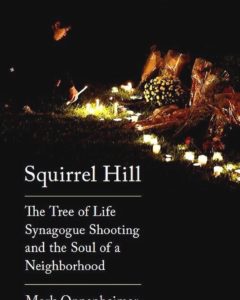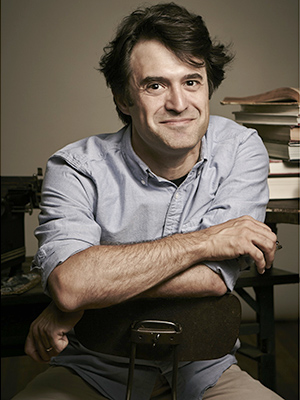 Video Replay of a discussion with author Mark Oppenheimer about his book- "Squirrel Hill: The Tree of Life Synagogue Shooting and the Soul of a Neighborhood”
Video Replay of a discussion with author Mark Oppenheimer about his book- "Squirrel Hill: The Tree of Life Synagogue Shooting and the Soul of a Neighborhood”
View the Recording HERE
Oppenheimer has taught at Stanford, Wellesley, and Yale, where since 2006 he has directed the Yale Journalism Initiative. He is a widely published journalist who wrote The New York Times Beliefs column, is the author of several books and is the founder of the world’s leading Jewish podcast, “Unorthodox.” In his new book, Oppenheimer uncovers the human side of Pittsburgh’s October 18, 2018 Squirrel Hill tragedy in which 11 Jews were massacred while worshipping at the Tree of Life synagogue. The attack was one of the deadliest anti-Semitic attacks in American history and Squirrel Hill is not only one of the oldest Jewish neighborhoods in the country, but is Oppenheimer’s home town.
Oppenheimer returned to his family home and through conversations with hundreds of neighbors and friends – both Jew and Gentile - he discovered a story of resilience, community, love and a resolve to overcome. As reviewed in The New York Times, “Propulsive . . . A poignant, deeply researched account of the Pittsburgh Jewish neighborhood in the aftermath of tragedy... How “Mister Rogers’ Neighborhood” became the site of the most deadly anti-semitic attack on American soil and what happened afterward unfolds with the precision of the best suspense stories...” The Washington Post wrote, “[Oppenheimer’s] compelling exploration of [the Tree of Life synagogue shooting’s] impact on the community is by turns searing and compassionate. It is an emotionally draining terrain, flecked with occasional, unexpected pockets of consolation. But in placing this hate crime against our country’s patchwork canvas of faith, politics and violence, Oppenheimer provides a powerful meditation on the changing meaning of community and belonging in an age of disconnection and isolation.”

